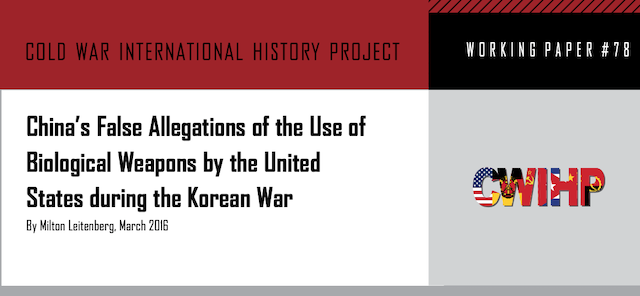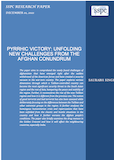CWIHP: "China’s False Allegations of the Use of Biological Weapons by the United States during the Korean War"

"A little-remembered aspect of the Korean War is an issue of great importance to those concerned with arms control and allegations of the use of Weapons of Mass Destruction (WMD), namely nuclear, biological, and chemical weapons. During and after the war, North Korea, China, and the Soviet Union alleged that the United States used biological weapons (BW) on an enormous scale in areas of both China and North Korea.
